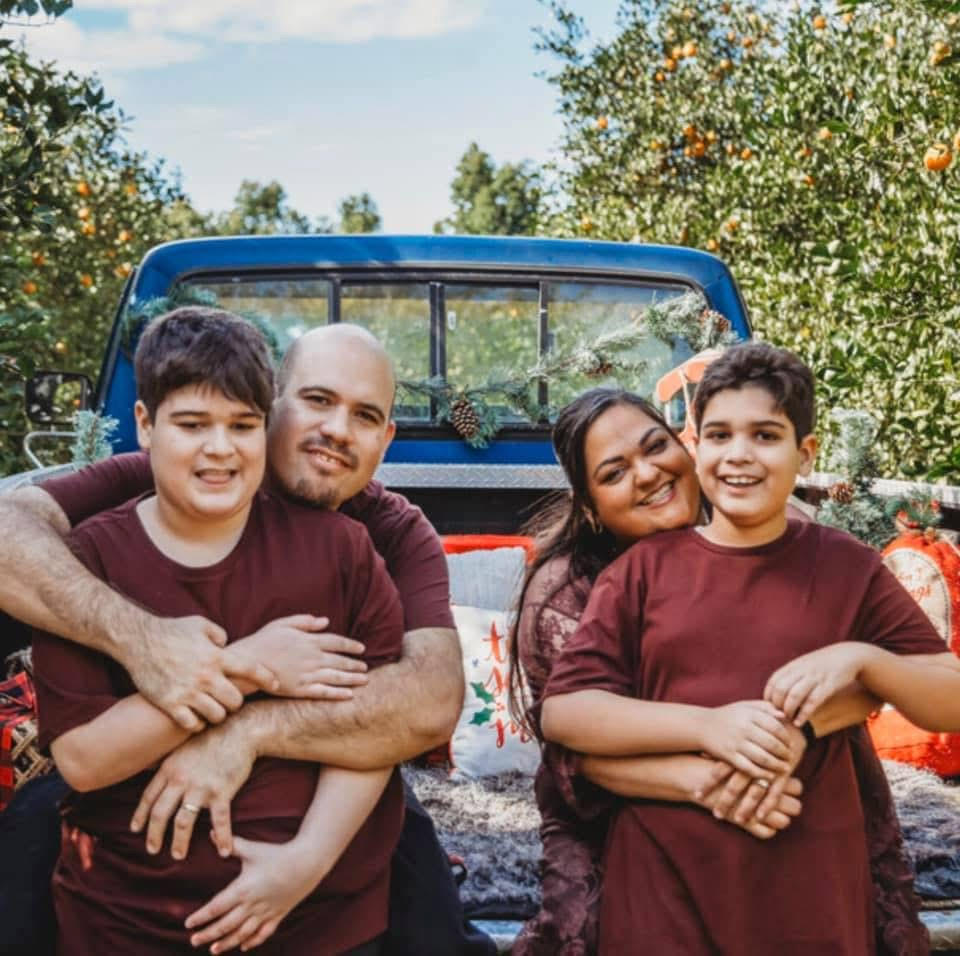

For Lizette and Randy, raising two sons with autism has meant navigating a maze of systems, paperwork, and heartbreak. “They’ll always be my babies,” she says of Jacob, 19, and Michael, 16. But when the boys lost Medicaid during the pandemic, the family’s fragile stability collapsed almost overnight.
A small IRS deposit briefly pushed their savings above the $3,000 asset limit, triggering a devastating chain reaction. Both children were cut off from Supplemental Security Income (SSI) and Medicaid for three years. “It didn’t matter that the money was gone,” Lizette recalls. “We just kept getting denied.”
Without insurance, the boys’ therapies vanished. The family maxed out credit cards, filed for bankruptcy, and relied on Lizette’s husband, a certified occupational therapy assistant, to help maintain their sons’ skills. “There was a lot of crying,” she admits. “We always said we’d go without as long as the kids had what they needed.”
Their situation was especially dire for Jacob, a non-verbal young adult with severe autism. He communicates through a letter board and gestures and requires constant supervision. When he turned 18, new eligibility rules meant his parents no longer had automatic authority to manage his care. They had to apply for guardian advocacy, a legal process allowing them to continue making decisions on his behalf as an adult with developmental disabilities.
After months of appeals and uncertainty, a breakthrough came. Through the Florida Health Justice Project helped the family untangle the bureaucratic mess. Around the same time, a new Social Security worker discovered the boys’ benefits had been reinstated a year earlier—but the family was never notified. Within weeks, both Jacob and Michael had Medicaid again.
Now, the family is rebuilding. Jacob is back to his specialized school program, steadily advancing with the right supports. Michael is receiving speech therapy and exploring home-based care options through Medicaid’s waiver programs. For the first time in years, Lizette can breathe. “I went grocery shopping and didn’t have to count what I put in the cart,” she says. “Before, it was always, ‘What gets us through the next 48 hours?’ Now the fridge and pantry are full.”
Their story underscores a larger truth: Medicaid is more than insurance—it’s an essential resource. It keeps families like Lizzet’s from falling apart when the system fails. “No parent should ever have to choose between their child’s care and keeping a roof over their head,” Lizette says.
For Lizette and Randy, raising two sons with autism has meant navigating a maze of systems, paperwork, and heartbreak. “They’ll always be my babies,” she says of Jacob, 19, and Michael, 16. But when the boys lost Medicaid during the pandemic, the family’s fragile stability collapsed almost overnight.
A small IRS deposit briefly pushed their savings above the $3,000 asset limit, triggering a devastating chain reaction. Both children were cut off from Supplemental Security Income (SSI) and Medicaid for three years. “It didn’t matter that the money was gone,” Lizette recalls. “We just kept getting denied.”
Without insurance, the boys’ therapies vanished. The family maxed out credit cards, filed for bankruptcy, and relied on Lizette’s husband, a certified occupational therapy assistant, to help maintain their sons’ skills. “There was a lot of crying,” she admits. “We always said we’d go without as long as the kids had what they needed.”
Their situation was especially dire for Jacob, a non-verbal young adult with severe autism. He communicates through a letter board and gestures and requires constant supervision. When he turned 18, new eligibility rules meant his parents no longer had automatic authority to manage his care. They had to apply for guardian advocacy, a legal process allowing them to continue making decisions on his behalf as an adult with developmental disabilities.
After months of appeals and uncertainty, a breakthrough came. Through the Florida Health Justice Project helped the family untangle the bureaucratic mess. Around the same time, a new Social Security worker discovered the boys’ benefits had been reinstated a year earlier—but the family was never notified. Within weeks, both Jacob and Michael had Medicaid again.
Now, the family is rebuilding. Jacob is back to his specialized school program, steadily advancing with the right supports. Michael is receiving speech therapy and exploring home-based care options through Medicaid’s waiver programs. For the first time in years, Lizette can breathe. “I went grocery shopping and didn’t have to count what I put in the cart,” she says. “Before, it was always, ‘What gets us through the next 48 hours?’ Now the fridge and pantry are full.”
Their story underscores a larger truth: Medicaid is more than insurance—it’s an essential resource. It keeps families like Lizzet’s from falling apart when the system fails. “No parent should ever have to choose between their child’s care and keeping a roof over their head,” Lizette says.

